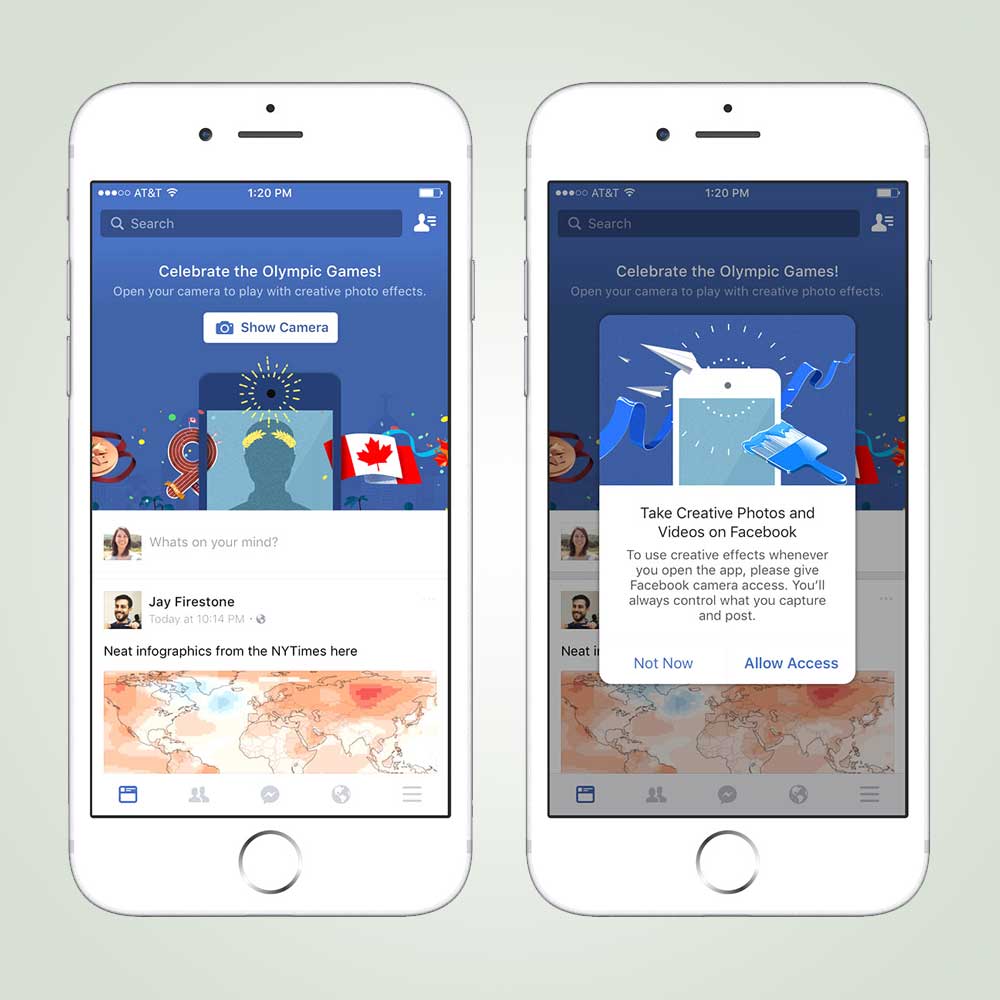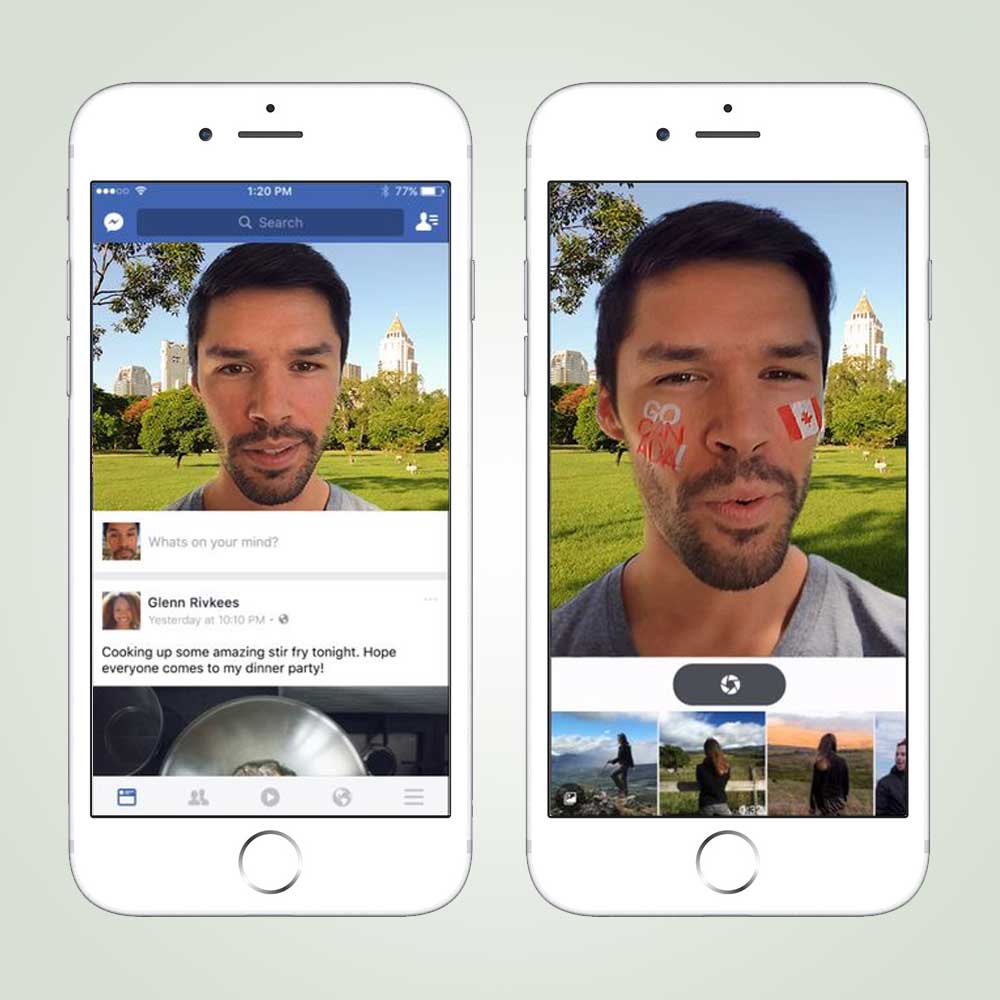
Copying someone else's work isn't a crime, at least that's true for the social giant Facebook.
After creating its own Stories feature for Instagram that is based from Snapchat's, Facebook is again taking a similar approach with its main app.
What Facebook does, is testing the placement for the camera shortcut on the forefront of its mobile app, in the center of the page in the space that users normally type in statuses. So when users first fire up Facebook's app, they have to tap on the camera shortcut to enable their camera. But after that, the camera shortcut will automatically be visible, greeting users as they open the app.
And not just that instant camera that Facebook is copying. Facebook is also putting its acquired MSQRD to a better use by incorporating its photo and video effects right into the feature.
While this isn't as frontal as Instagram's Stories that is plainly a mimic of Snapchat's, Facebook is more into the design as the layout.
The change is meant to encourage users to capture more photos and videos, and appeal them more with filters and stickers. And in other words, Facebook is like putting status updates in a lower emphasis. Facebook wants users to share more visuals than just text.
The test begins in August 5th, 2016 in Canada and Brazil.

Facebook is moving in a league on its own. There is no clear competitor that is there to face the social giant straight in the face. But still, competition comes hard, especially when it comes to getting attention from a specific type of audience.
Facebook is a more global and fully-packed; it's a complete package of almost everything of social media can have. Rather than specializing in bits for the greater goods, Facebook has it all.
But clearly Facebook is getting worried about Snapchat. The social media isn't in Facebook's league, but its continued growth and engagement among young generations is putting itself far above Facebook. Facebook's anxiety over Snapchat's also comes with a good reason since the social giant has seen a declining growth on its platform.
The company had experienced a 21 percent decline in the amount of posts per user. Meanwhile Snapchat, which rejected a $3 billion acquisition offer from Facebook in 2013, has seen an explosive growth in photos and videos shared to the platform.
So by copying some of Snapchat's features, Facebook wants to give that Snapchat-esque experience to those youngsters. The more of those users are liking it, the less reasons they have to be on Snapchat.
This in turn could increase the number of new posts created by Facebook users.
And as the moment of choice, Facebook is testing it during the 2016's Summer Olympics. Participants in the test, which is being timed to the start of the Olympics in Rio de Janeiro, will find that the Facebook flagship app opens to the News Feed as usual. But in the place where "what's on your mind?" should usually be, users will now see an open camera. A tap on its will open the camera app in fullscreen mode. Here users can take pictures or videos. And if users are using the front-facing camera, they can use one of MSQRD's augmented reality filters to take selfies in a more creative ways.
Posts that created with the camera shortcut are treated just like any other posts: they're added in the News Feed and to the timeline of the user's profile.

"People are increasingly sharing via videos and photos - on Facebook and beyond," said Facebook in its statement. "And it's our job to create experiences that help people create and share in the ways they want."
Facebook may live in a different league. As the most powerful and the most prominent entity in the social media sphere, Facebook comes with no apparent competitors. But that doesn't mean others have no chance in getting Facebook's portion.
By copying features that competitors have found to be successful, Facebook can have keep its distance from any incoming rivals. For Instagram, adding Snapchat-like Stories means to expand beyond the traditional Instagram glossy and aspirational photos. And as for Facebook, the copying attempt is meant to transform its News Feed into a home for videos and photos that encourage self-expression and engagement.
Business is harsh, and could be ruthless to some.